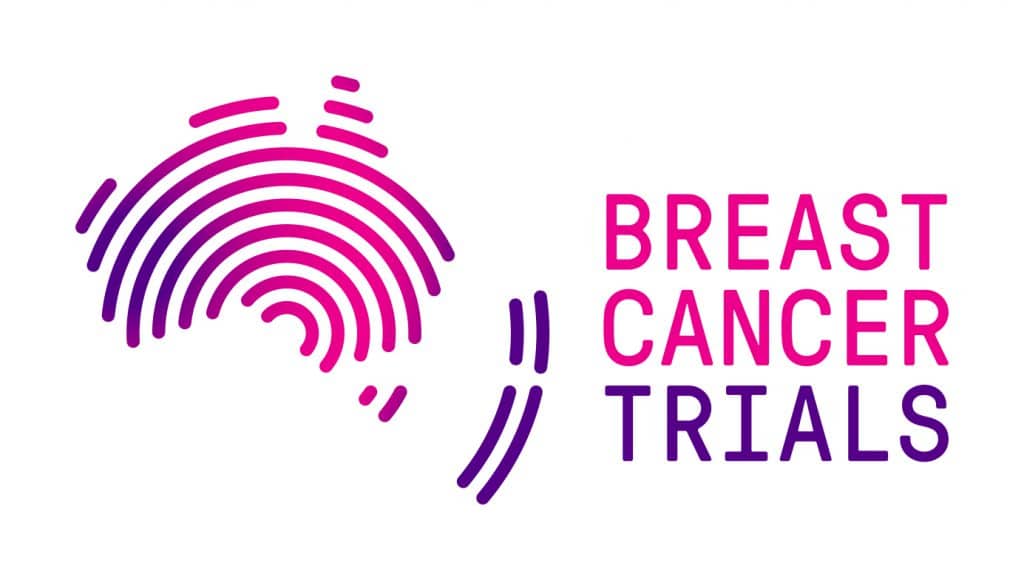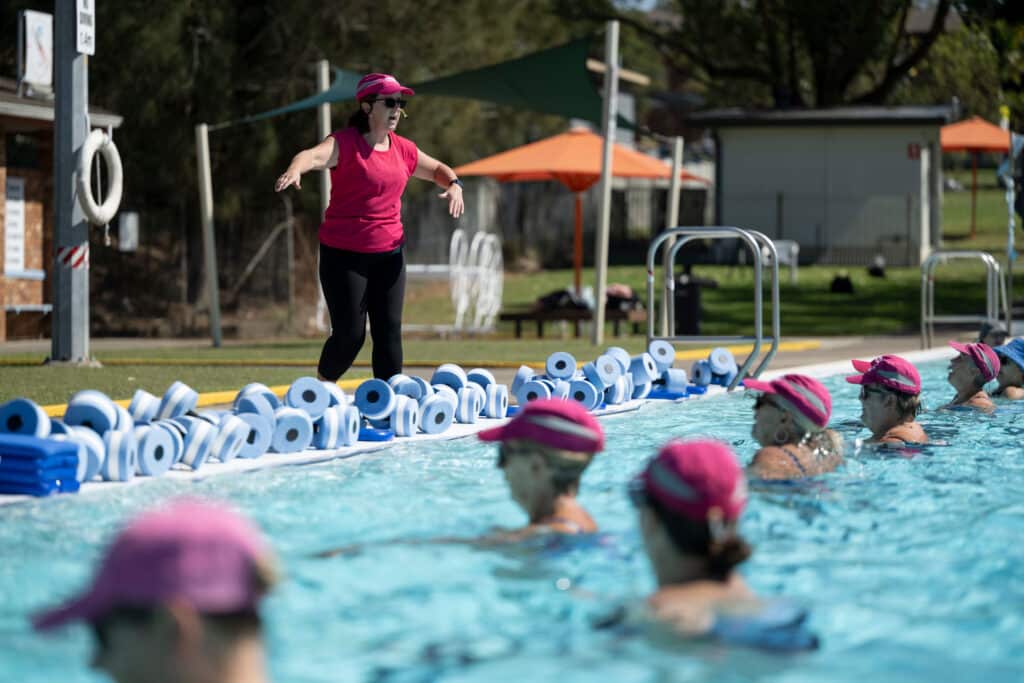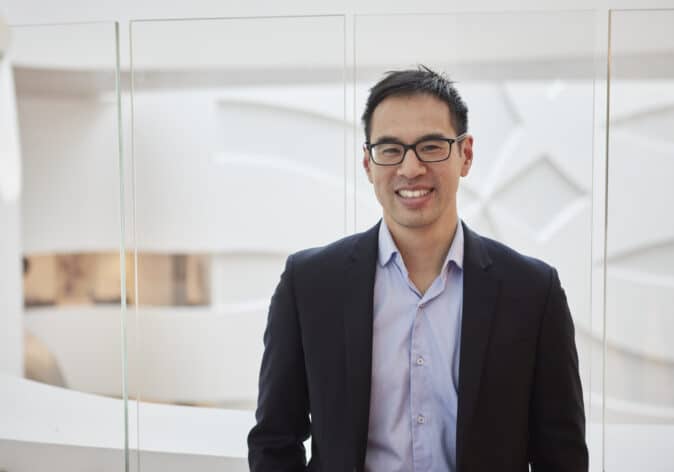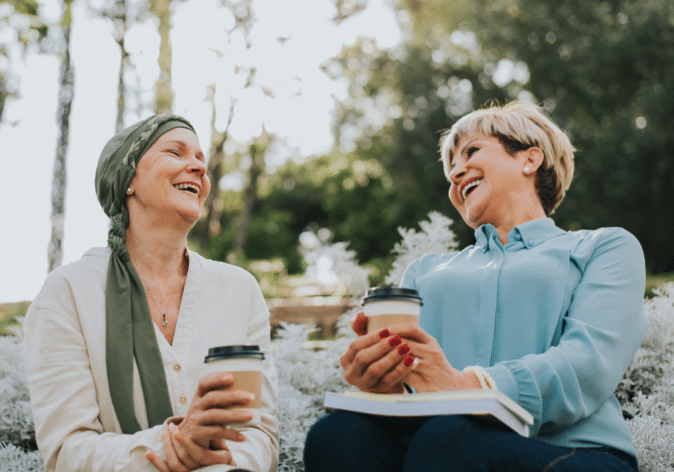Ann-Maree is an aqua aerobics instructor who runs a class known as ‘Aquafit’ and has hosted a number of events to support the research of Breast Cancer Trials. This year the event raised an incredible $3,700 and we spoke with Ann-Maree about the Aquafit community, her inspiration behind the event and the importance of breast cancer clinical trials research.
“I’m a group fitness instructor, and I’ve been in this industry for around about 15 years and here at this facility for the last four years running aqua fit classes. So, I do land-based classes as well. I do both the indoors and outdoors classes, but I do love the outdoors and the aqua classes, which are a lot of fun.”
“There’s something about water that draws people together. The aqua fitness is really strong and appeals to a lot of people because there’s something about water that sort of levels the playing field. So, we’ve got a lot of people that come in who have mobility issues and joint issues and that sort of thing, but they get in the water and suddenly it’s a level playing field.”
“So, it’s a really beautiful workout and a way to sort of have everybody on the same level. Aquafit is a great workout, and it has a broad appeal for a lot of people because of the no impact, and also too, there’s hydrostatic pressure in the water that actually can reduce your heart rate when you’re working out. We still do get that heart rate up, but it just means that you can go a little bit harder than you perhaps could on land in a lot of cases.”
“We always do a warmup to get started, so just in terms of increasing the blood flow and getting the heart rate up and preparing the muscles for the workout. And then generally we go into a little bit of cardio work. We do some strength work. We do some resistance work. I guess as well, when you’re in the water, it acts as a resistance too.”
“We do a lot of work around core and stability and that kind of thing as well. So, once we’ve done all of that, we’ll finish off with a cool down to stretch all of those muscles that we have just used and bring that breathing and heart rate back down towards normal. So, it’s about warming you up, getting you moving, cooling you down and getting you stretching as well.”
Listen to the Podcast
We spoke with Ann-Maree about the Aquafit community, her inspiration behind the event and the importance of breast cancer clinical trials research.
What started you on the path of the Aquafit fundraiser for Breast Cancer Trials?
“Well, when you consider that our active membership here there is about 650 participants, who are predominantly women, about 95 percent women. So, we always like to support each other and of course with the statistics being what they are of women receiving a breast cancer diagnosis being one in seven, there’s many people in our community that have already had a battle with breast cancer.”
“So, it came about one day, we thought let’s do a breast cancer fundraiser. And it was a unanimous decision, it was a no brainer. You know, you’ve got a whole group of women supporting each other, but also supporting a cause that’s going to help us all potentially in the future in terms of outcomes and future treatments and all that kind of thing.”
“So, it was a perfect match to pick Breast Cancer Trials. The reason being that it’s kind of got that long foresight into treatments and also into the future and new treatment developments. One of the reasons I went with Breast Cancer Trials is because my sister who has had a breast cancer journey has had great success and a great prognosis because after her initial surgery, she had Tamoxifen.”
“I also have other participants within this community that participated in the Tamoxifen trial. So, it’s a really beautiful thing to see that work that you guys are doing in practice with one of my loved ones.”
“In my own experience too, my paternal grandmother was diagnosed with breast cancer in the eighties and I’m not really across all of her treatments, but I do know that she had a double mastectomy, but I don’t know that there were any drug treatments available to her at the time.”
“So, I know that down the track, those things have been developed and that Tamoxifen’s been around for a while, and there’s the new one that they’re talking about, which is Herceptin, and I have another client here who I know has benefited from that treatment drug and her outcome and prognosis is really good as well.”
“I understand that they have been around for a very long time and making lots of good genuine progress in that time gives us all a bit of hope for our own daughters and granddaughters down the track.”
“When we decided on Breast Cancer Trials as our charity, we discussed options in terms of fundraising and the best way to do it. So, I saw some Aquafit pink hats, and they’ve been really popular with the ladies. I guess in terms of practicalities, we all need a hat in the pool, and they were really well received. So, I bought 100 hats, and I truly could have doubled that order. They were really good, and everybody was more than happy to purchase a hat with the profits going to Breast Cancer Trials.”
“It’s practical, it’s for a great cause and they just ran off the shelf. I should have ordered double, but I definitely will next year. Of course, the other thing we did too was what we do best, the Aquafit fundraiser. We had a big double masterclass where we had two instructors, myself and my lovely colleague Hannah.”
“I think you have to be a little bit crazy to be an aqua instructor. So, we had these outrageous Ken and Barbie costumes, and we had the best time. We had around about 75 people in the pool between the two classes on that day, and we also conducted a morning tea afterwards. We did a raffle, which was really well received. I think we raised around about $1,700 just from the raffle.”
“So, between the hat sales and the morning tea, the result was fabulous. We had a brilliant campaign and $3,700 was the final number that we were able to donate to Breast Cancer Trials. So, it was amazing. It makes me feel really proud and that we’ve done our little bit. We’ve done our best work doing what we love to do, and we’ve actually made that investment into our own medical treatment in a way, indirectly, down the track if we are one of those one in seven women that are diagnosed with breast cancer.”
“The fact is that 57 people within Australia each day will be diagnosed with breast cancer. And I think it just means that what we are doing and in supporting Breast Cancer Trials is just helping everybody, not just ourselves locally. I guess it’s that layered effect, so it’s not just helping us here in Lake Macquarie and Newcastle. It’s a broader thing that’s going to benefit many people.”
What does Aquafit entail and how did it originate?
“Well, we had a lot of success being very practical and just doing an extension of what we already do. As I said, we’ve got a fabulous community around here, not just in the aqua fit community, but in the broader pool community as well. So, there were a lot of people who weren’t necessarily aqua people who still wanted to support the charity.”
“I think it’s about using the resources and the people you’ve got around you, and you present them with some statistics and some facts around what Breast Cancer Trials do, and it’s an easy cause to support. Nobody hesitated in supporting it, whether it was a $5 raffle ticket, or a hat, or whatever it was. But I think the broader community definitely came together. It’s also about education around what we do and why we do it. And the money just kept rolling in.”
What would you say to someone who was thinking about supporting Breast Cancer Trials?
“Oh, I think just get in and have a go. Any money raised, even if it’s a small amount, is going towards the cause, and it’s all going to help. I’ve been buzzing for days after the fundraiser because everybody feels good in terms of what they’ve been able to do. And it’s been an absolute pleasure for me to drive that fundraiser and see those results and see the joy and the hope that it has brought, not only for us amongst our community, but for the broader community and moving forward into the next generations potentially.”
“My sister was diagnosed with breast cancer in 2020, and she was very fortunate that her breast cancer was detected very early through routine mammogram at age 52, and she had a successful mastectomy and reconstruction surgery. And because hers was caught so early she was able to avoid chemotherapy or any of the other treatments, but she is currently on Tamoxifen, so she’s more than halfway through her five-year course, which is really amazing.”
“To see that her prognosis and her health is just amazing, and she was able to pick up where she left off after her breast cancer trial, really offers a lot of hope to a lot of people. We have a lot of ladies who have had breast cancer. Everybody knows of somebody, it’s their sister, their friends, or their loved ones in one way or another.”
“But there’s a lot of them here that have had a breast cancer journey, that have shared their experience, and I’m sure there’s a lot that haven’t shared their experience as well. So, I guess everyone’s breast cancer journey is quite unique and requires different treatments, depending on their stage of life and the stage of their diagnosis.”
“So, everybody’s different. Everybody had a different story to tell, but it’s very comforting to know that those treatments and drug trials are coming through in order to help minimize the occurrence of breast cancer, and we can see that there are a lot more positive outcomes coming through.”
“So, if you’re thinking about doing a fundraiser to support Breast Cancer Trials, just do it. Its impact amongst the broader community is going to be felt for many generations, not just for yourselves. And it’s really important that we continue to do that research and fund all of those different drug trials and therapies that are coming on board as the technology progresses.”
What are your hopes for the future?
“Well, I would hope that in the future that a breast cancer diagnosis is no longer as devastating for women, and that the trials and the new therapies that are coming through will greatly reduce people’s the prevalence of breast cancer, and ultimately extend people’s lifespan and improve their quality of life down the track.”
“Elimination would be a wonderful thing, but I guess that’s a process as well. So any developments that we can support are good developments, and it would be really lovely to see future generations not needing to receive such a devastating breast cancer diagnosis.”



